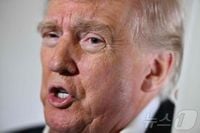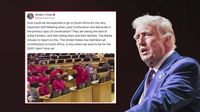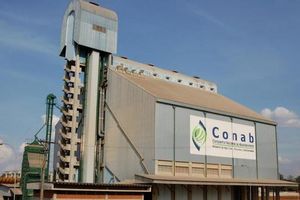Donald Trump, the US President, has raised concerns about the upcoming G20 summit scheduled for November in South Africa, hinting at a potential boycott due to the country’s controversial land policies. In a post on his social media account on April 12, 2025, Trump stated, "The South African government is seizing land from white farmers and murdering them and their families." This alarming assertion has sparked discussions about the implications of hosting such a significant international event in a nation grappling with severe social and political issues.
Trump's comments reflect a broader context of unrest surrounding land reform in South Africa, which has been a contentious topic since the end of apartheid. The South African government, led by President Cyril Ramaphosa, enacted a law in January 2025 that allows for the expropriation of privately owned land without compensation in cases deemed to serve the public good. This legislation aims to address historical inequalities in land ownership, which disproportionately favors the white population, a remnant of the apartheid era.
In his post, Trump questioned how the G20 summit could be held in a country where "genocide and land seizure are core topics." He expressed disbelief that South Africa could be considered a suitable host for such a prestigious gathering, stating, "I don’t think this country is a place that wants to host the G20." He further criticized the media for not adequately reporting on these issues, claiming that even the UK is ignoring the situation.
In a clear stance against the South African government’s actions, Trump announced in February 2025 that the United States would suspend all government aid to South Africa, citing the new land policy as the primary reason. This decision aligns with his administration's broader foreign policy strategy, which often emphasizes national sovereignty and opposes perceived injustices.
Marco Rubio, the US Secretary of State, has also echoed Trump's sentiments, boycotting a G20 foreign ministers' meeting held in South Africa earlier this year for similar reasons. Rubio's absence from the meeting highlights the growing tensions between the US and South Africa over these land reform policies.
The South African government argues that the land reform initiative is essential for correcting historical injustices and promoting social equity. However, critics, including Trump, contend that the policy could lead to further violence and instability, particularly against white farmers who have been disproportionately affected by land seizures.
As the G20 summit approaches, the international community is watching closely to see how these developments will unfold. Trump's potential boycott raises questions about the effectiveness of the G20 as a platform for addressing global issues if member nations cannot agree on fundamental principles of justice and equity.
In conclusion, the controversy surrounding the G20 summit in South Africa reflects deeper issues of race, land ownership, and political governance in the post-apartheid era. As world leaders prepare to gather in November, the discussions will likely extend beyond economic cooperation to address the pressing social issues that continue to plague South Africa.





